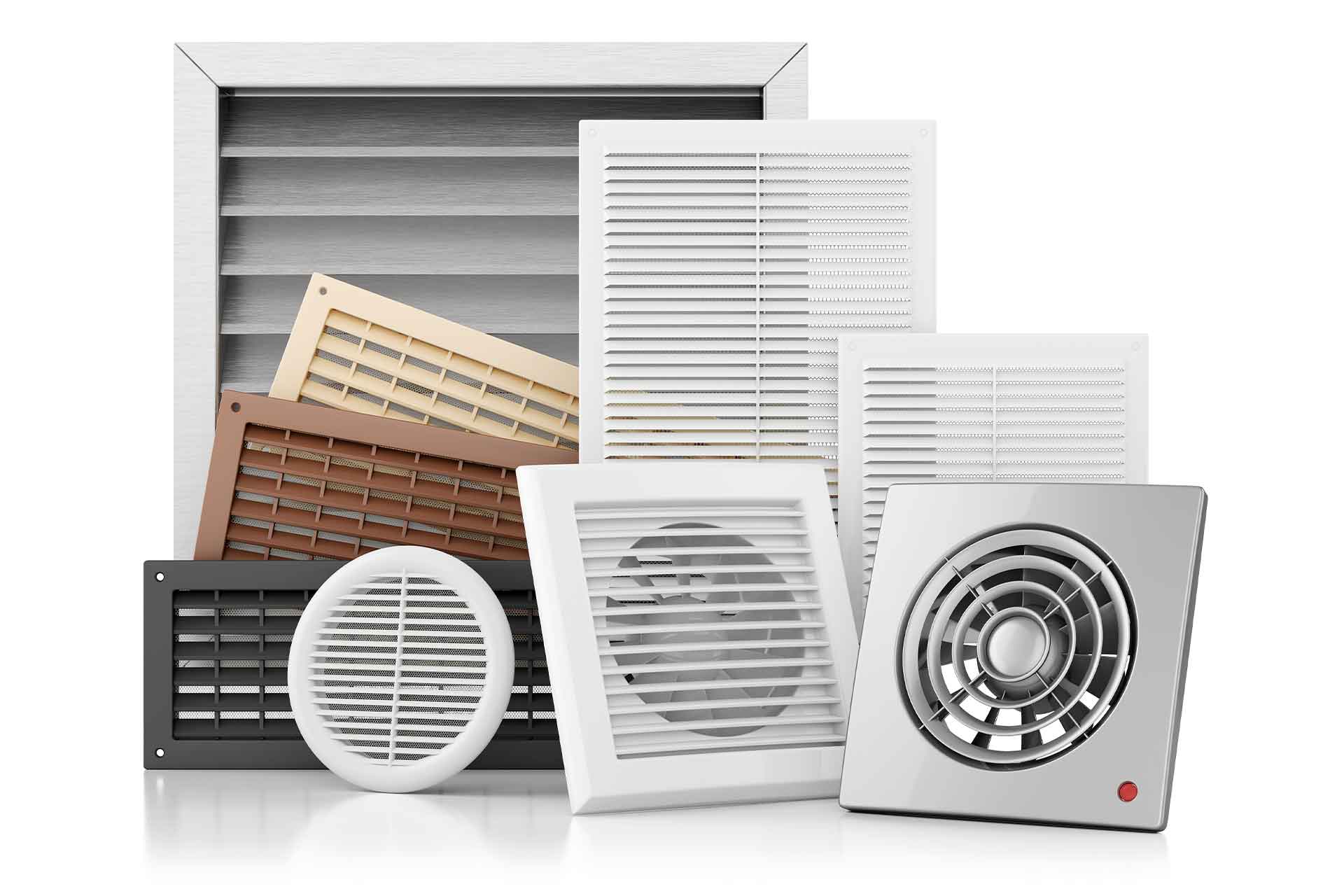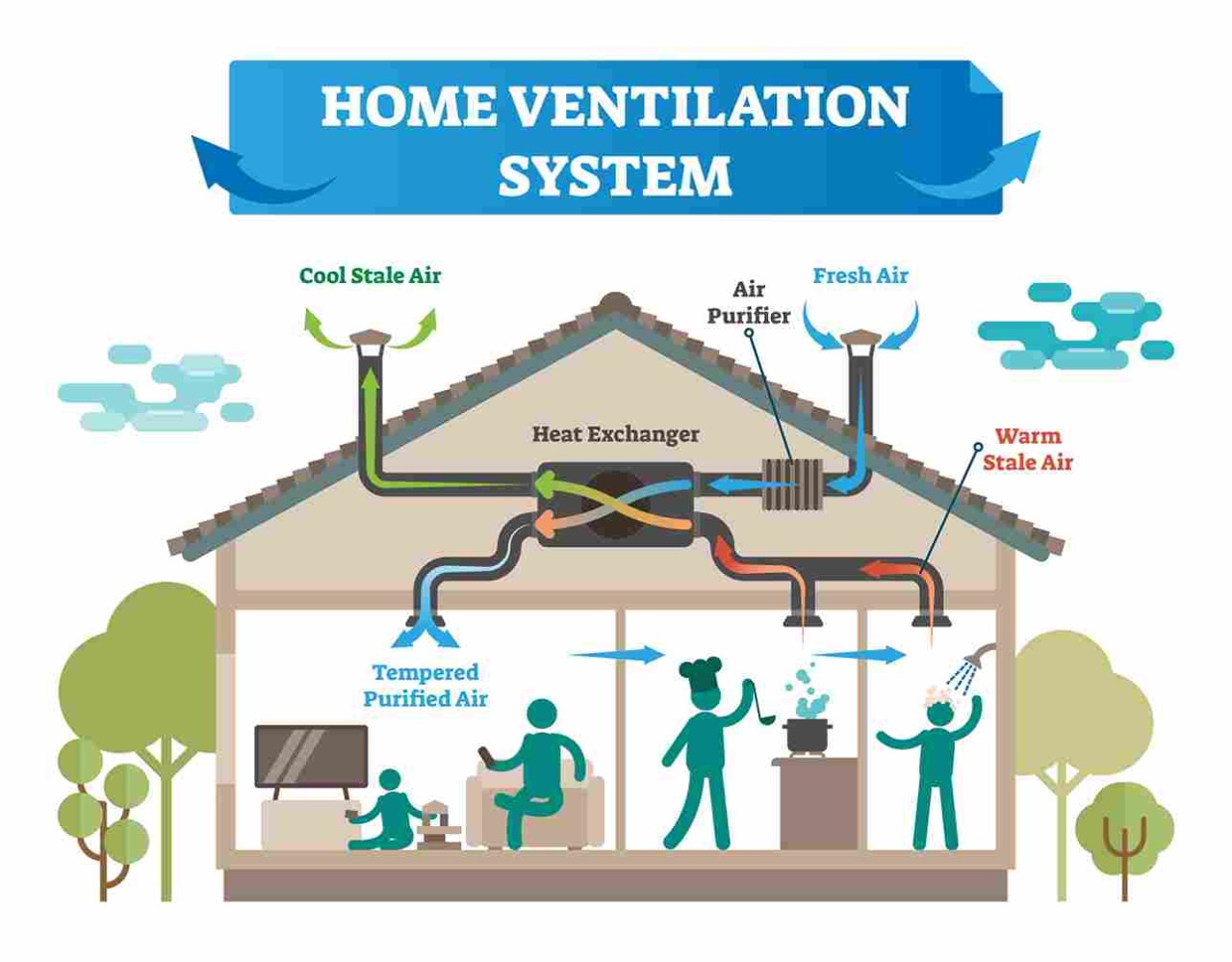The Role of Home Air Flow in Avoiding Mold and Indoor Allergens
Home air flow is a vital component in keeping a healthy interior atmosphere. It controls humidity degrees, which can avoid the development of mold and the buildup of allergens. Several house owners overlook the relevance of correct ventilation, often causing unseen problems. Understanding exactly how air flow systems function and their influence on air quality could be the trick to a healthier home. What steps can be taken to boost these systems effectively?
Comprehending Home Air Flow Systems
While several property owners may ignore the importance of ventilation, recognizing home air flow systems is important for keeping indoor air quality and stopping mold and mildew development - Home Ventilation Melbourne. These systems facilitate the exchange of stale indoor air with fresh outside air, properly reducing pollutants and wetness degrees. Usual kinds consist of all-natural ventilation, which depends on wind and temperature level differences, and mechanical ventilation, which utilizes ducts and fans to manage air movement. In addition, well balanced ventilation systems combine both methods to optimize air quality. Correctly created and preserved ventilation systems can help regulate temperature and humidity, guaranteeing a comfortable living atmosphere. House owners must think about aspects like home climate, layout, and occupancy when choosing a ventilation system to best suit their demands and boost general air top quality
The Impact of Moisture on Mold Growth
Moisture plays a vital function in mold and mildew development, making it an important factor for homeowners to check. Mold grows in atmospheres where moisture levels exceed 60%, as these problems provide the dampness required for spores to proliferate and sprout. High humidity can arise from different resources, including inadequate ventilation, water leakages, and cooking or showering activities. When moisture levels continue to be elevated, mold and mildew can develop quickly on natural materials such as drywall, textile, and wood. Homeowners must utilize dehumidifiers and ensure correct ventilation in areas vulnerable to moisture, such as restrooms and cellars. Maintaining indoor moisture in between 30% and 50% can significantly decrease the threat of mold growth, adding to a much healthier living environment.
Determining Typical Indoor Allergens
Interior settings can harbor a selection of allergens that influence wellness and comfort. Common indoor irritants consist of allergen, pet dander, mold spores, and pollen. Allergen thrive in bedding, rugs, and upholstery, eating natural product and adding to respiratory issues. Animal dander, important site composed of small flakes from skin and hair, can cause allergic responses in sensitive individuals. Mold and mildew spores, typically existing in wet locations, can affect and multiply air quality. Additionally, plant pollen can penetrate homes with open home windows or on garments. Determining these irritants is crucial for maintaining a healthy interior atmosphere. Awareness of their presence permits property owners to take positive procedures to minimize exposure and boost total indoor air quality.
Advantages of Correct Ventilation
Appropriate ventilation is essential for keeping a healthy and balanced interior atmosphere, as it helps to manage air high quality and decrease the buildup of toxins. Ample air flow helps with the exchange of indoor and exterior air, thereby diluting unsafe materials such as unstable organic substances, allergens, and dust. This procedure not only enhances convenience however also adds to the general well-being of passengers by lessening respiratory concerns (Home Ventilation Melbourne). Additionally, appropriate ventilation successfully manages moisture levels, reducing the probability of mold development and promoting a drier atmosphere for wellness. Furthermore, it her comment is here can boost energy performance by ensuring that home heating and cooling systems run more successfully, causing lower energy prices. Overall, appropriate air flow is a critical element in advertising a secure and healthy living space

Tips for Improving Home Air Flow
Numerous property owners may ignore it, boosting home air flow is crucial for boosting air quality and preventing mold growth. One effective strategy is to on a regular basis open windows to promote cross-ventilation, allowing fresh air to circulate. Setting up exhaust fans in shower rooms and kitchen areas can effectively remove moisture-laden air, reducing humidity degrees. Home owners need to additionally take into consideration utilizing air purifiers with HEPA filters to catch toxins and irritants. On a regular basis keeping cooling and heating systems, consisting of altering filters, guarantees peak air movement and effectiveness. Sealing leakages around home windows and doors can avoid outdoors air from entering, which helps keep a constant indoor setting. Integrating houseplants can naturally boost air high quality while adding visual value to the home.
Regularly Asked Concerns
How Often Should I Tidy My Home Ventilation System?
Establishing just how commonly to clean a home air flow system depends on numerous elements, consisting of usage and ecological conditions. Home Ventilation Melbourne. Usually, experts recommend a comprehensive cleaning every 3 to five years to preserve perfect air movement and efficiency
Can Plant Kingdom Help In Reducing Indoor Allergens?
Research study indicates that specific interior plants may assist reduce allergens by boosting air quality and boosting moisture. However, their efficiency differs, and maintaining a clean atmosphere continues to be essential for handling interior irritants efficiently.
What Kinds Of Air Filters Are Best for Mold Prevention?

Exist Certain Air Flow Needs for Basements?

Just how Do I Know if My Ventilation Is Working Properly?
To identify efficient air flow, one ought to monitor humidity degrees, examine airflow with vents, and observe indicators of condensation or stagnant air. Regular evaluations can show whether the system sufficiently flows and exchanges interior air.
Understanding exactly how ventilation systems feature and their influence on air quality could be the secret to a healthier next page living area. While several homeowners may neglect the value of air flow, recognizing home air flow systems is essential for preserving indoor air high quality and protecting against mold and mildew development. Usual kinds consist of all-natural air flow, which counts on wind and temperature level distinctions, and mechanical ventilation, which utilizes fans and ducts to manage air flow. Appropriate air flow is necessary for keeping a healthy and balanced interior setting, as it aids to regulate air high quality and minimize the build-up of toxins. Many house owners might overlook it, improving home ventilation is important for improving air quality and stopping mold and mildew growth.